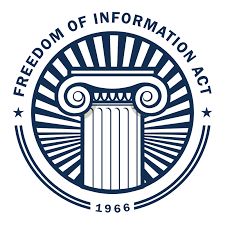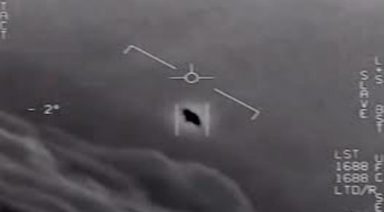Expediting the Disclosure Process; How to Submit a FOIA Request

Government transparency is necessary to a healthy democracy, and in the U.S. one of the best tools at our disposal is the Freedom of Information Act (FOIA). But filing a FOIA request isn’t always as simple as it sounds. So, we’ve compiled some best practices on how to submit a FOIA request and improve your chances of success.
FOIA was written into law by President Lyndon B. Johnson, but despite his seemingly supportive rhetoric upon signing, he actually detested the bill. That’s according to Bill Moyers, White House Press Secretary at the time, who said Johnson adamantly opposed the idea of journalists “rummaging in government closets.”
Johnson almost pocket vetoed the bill – let it die while Congress was on break – but was convinced otherwise by Senator John Moss, who drafted it in response to government secrecy during the Cold War. The bill passed on July 4, 1966 – a fitting date.
Submitting a FOIA Request
There is a certain protocol to follow when filing FOIA requests and every agency has its own idiosyncrasies. If you simply demand an agency give you all its information about aliens and UFOs, you’re probably not going to get anything of substance, if you get anything at all. Instead, requests should address specific programs, officials, documents, and the time period in which you’re interested.
Aside from asking politely, you need to describe in detail the specific information you’re looking for, the format you want it in, and where to send your request. The one thing you don’t need to provide is the reason you’re requesting the information; that’s your prerogative.
One of the first steps you can take is to do extensive research. Inform yourself on the topic you’re interested in as much as possible, learn an agency’s chain of command, and identify any hurdles or dead ends. This will prevent you from asking the wrong questions that could potentially derail or delay your request, or prevent you from finding anything at all. It also helps to know whether someone has made the same request and already published it somewhere.

To convey how important specificity and research are, consider this: after the multi-million-dollar, clandestine Pentagon program studying UFOs was reported by the New York Times, many filed FOIA requests asking the Defense Department for information regarding the Advanced Aerospace Threat Identification Program, or AATIP – the name used in the Times article.
Much to the chagrin and confusion of those requesting information, the government claimed no such program ever existed. That’s because the program was officially referred to by another name, eventually uncovered by UFO researcher Paul Dean. He discovered the program’s original title was the Advanced Aerospace Weapon System Application Program (AAWSAP) and that the acronym reported by the Times was more of an informal term for a facet of a larger program. But now that this discrepancy has been uncovered, his query is behind more than 1,139 others, potentially dragging out his response time for months longer.
Some agencies have even indexed all of the requests they’ve granted or processed, including the EPA, Customs and Border Patrol, and the Department of the Navy. These can be found at FOIAonline.gov
You can also FOIA a FOIA request by asking for data or a catalog of all previous FOIA requests on a particular topic. This helps weed out questions that may have been denied, led to a dead-end, or actually turned something up. If a request has already been processed pertaining to your topic in some way, you can request a copy of that information and receive it in very little time.
Once you’ve filed a request and received confirmation it’s being processed, it may be a good idea depending on how urgently you need it, to check in every now and then with your assigned FOIA officer. If you can develop a rapport with them, that’s even better. Learning the officer’s name, method of search, resources, and preferred communication formats can save you time and energy. It may also lead to their ability to help guide you in the right direction if they’re not the person you’re looking for.
Listen to the founder of The Black Vault, John Greenewald, discuss his experience filing hundreds of FOIA requests regarding aliens and UFOs on this episode of Beyond Belief:
Submitting a FOIA Request Sample Letter
Agency Head [or Freedom of Information Act Officer]
Name of Agency
Address of Agency
City, State, Zip Code
Re: Freedom of Information Act Request
Dear ______________:
This is a request under the Freedom of Information Act.
I request that a copy of the following documents [or documents containing the following information] be provided to me: [identify the documents or information as specifically as possible].
In order to help to determine my status to assess fees, you should know that I am (insert a suitable description of the requester and the purpose of the request).
[Sample requester descriptions: A representative of the news media affiliated with the ___________ newspaper (magazine, television station, etc.), and this request is made as part of news gathering and not for a commercial use.
Affiliated with an educational or noncommercial scientific institution, and this request is made for a scholarly or scientific purpose and not for a commercial use.
An individual seeking information for personal use and not for a commercial use.
Affiliated with a private corporation and am seeking information for use in the company’s business.]
[Optional] I am willing to pay fees for this request up to a maximum of $_____. If you estimate that the fees will exceed this limit, please inform me first.
[Optional] I request a waiver of all fees for this request. Disclosure of the requested information to me is in the public interest because it is likely to contribute significantly to public understanding of the operations or activities of the government and is not primarily in my commercial interest. [Include a specific explanation.]
Thank you for your consideration of this request.
Sincerely,
Name
Address
City, State, Zip Code
Telephone number [Optional]
Denial and FOIA Request Appeals
Government agencies are allowed to deny requests for a number of reasons: failure to describe documents reasonably; documents don’t exist pertaining to your description; or if you can’t or won’t pay the anticipated processing fees.
There are nine official exemptions allowing a FOIA request to be denied, of which most can be challenged or asked for re-examination. Those exemptions are: national security, internal agency rules, info exemption from another federal statue, trade secrets and confidential information, internal agency memo, personal privacy, investigatory records, and other exemptions. You can find more detail about those here.
These situations can always be appealed or reconciled in some way. It is important to make the argument that the release of this information is highly beneficial to public interest. It’s also common to challenge the adequacy of an agency’s search, asking it to refine or explain its process fulfilling your request. And if you want to take it to the next level, the adequacy of their search can even be challenged in court.
If the agency finds something related to your request that it does not want to release, it still must take action to release parts of the document that are not classified – a document with redactions. If they can’t release any part of a document, they must tell you how much information is being withheld, unless the mere existence of those records is classified.
While FOIA is an excellent tool to maintain the foundation of our democracy, it is not always the easiest tool to use. Even those who have filed hundreds or thousands of FOIA requests still experience resistance from government agencies not willing to divulge their secrets and behavior. That’s why it’s important to be patient, assertive, and even aggressive when you need to be, in order to attain the information you seek.
Remember, anyone can file a FOIA request, whether a U.S. citizen or not. Don’t let initial rejection set you back, be persistent, and demand disclosure of the information we deserve. A lack of transparency can only lead to tyranny.
John Greenewald discusses how to submit a FOIA request and his process for achieving best results on this episode of Beyond Belief:
The Reporter Who May Have Learned the Truth Behind JFK's Assassination

Few historical events have sparked as many conspiracy theories as the JFK assassination, but when one looks at the evidence regarding the Kennedys’ history with the country’s organized crime families, it’s hard not to see the mob’s culpability. At least that’s what best-selling author, researcher, and former criminal defense attorney Mark Shaw has detailed over the course of several books, including his most recent titled, “The Reporter Who Knew Too Much.”
The reporter Shaw is referring to is Dorothy Kilgallen, arguably the most famous female journalist of her era, known for a syndicated column in the New York Journal-American, a nationally broadcast CBS radio show listened to by millions, and her role as star panelist of the celebrity game show “What’s My Line?”
Kilgallen met an untimely death in 1965 while investigating a strong suspicion that members of the New Orleans mafia may have been behind JFK’s assassination. Fanning the flames of conspiracy further, Kilgallen’s reported cause of death — acute ethanol and barbiturate intoxication — was uncannily similar to that of Marilyn Monroe, whose alleged suicide has been questioned interminably.
According to Shaw’s research, Kilgallen was one of few people who connected Jack Ruby — the Dallas nightclub owner who murdered Lee Harvey Oswald — to Carlos Marcello, the “Godfather” of the New Orleans mafia. Knowing the Kennedy family’s complicated ties to various mob syndicates, Oswald’s history of living in New Orleans, and Ruby’s affiliations with the mob, Kilgallen followed her instinct. She also happened to be the sole reporter to interview Ruby at his trial, out of hundreds who were present.
In 1965, Kilgallen embarked on an investigative trip to Louisiana to test her hypothesis, bringing only a hairstylist along with her. However, she quickly told him to return to New York and not mention to anyone she was down there. Shaw says he believes she uncovered some damning evidence implicating Marcello’s involvement in the Kennedy assassination, which she quickly realized could cost her her life. Kilgallen returned to New York and planned a return trip to New Orleans to meet a confidential informant, but was found dead just weeks before she was supposed to leave. She described her plans to meet the informant on her second trip as “cloak and daggerish.”
The idea that the mafia was behind Kennedy’s assassination isn’t a new one. It was well known that the family’s patriarch, Joe P. Kennedy Sr. had a convoluted history with a number of well-known figures in organized crime. Kennedy Sr.’s business dealings in Chicago led to his acquaintance with famous mob boss Frank Costello, who claimed the two were involved in bootlegging operations during prohibition. Though Kennedy Sr. denied this connection, he continued to build his vast fortune through exclusive distribution rights for world-renowned brands of scotch and other imported liquors when prohibition ended.




































